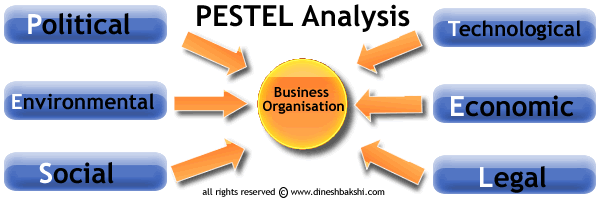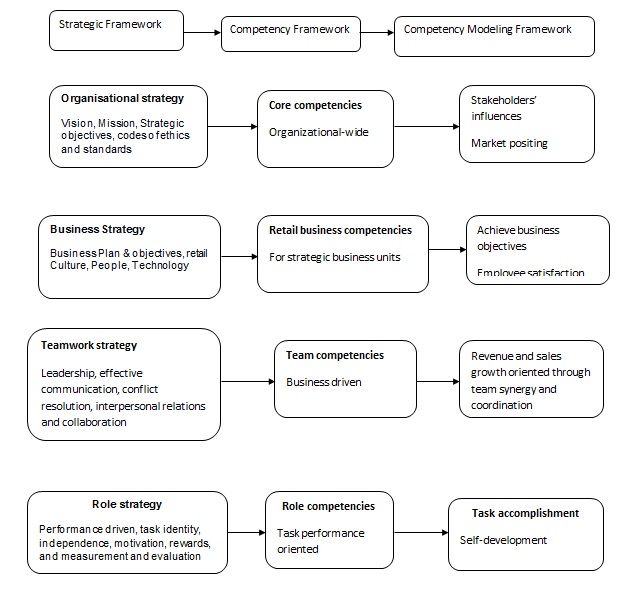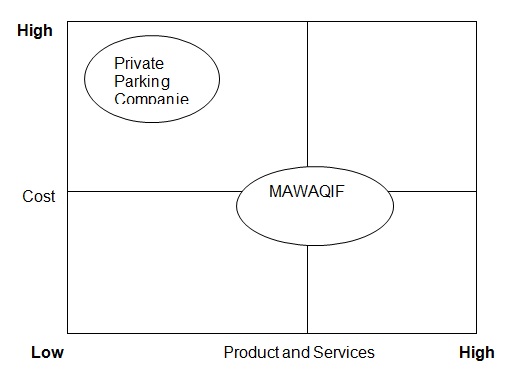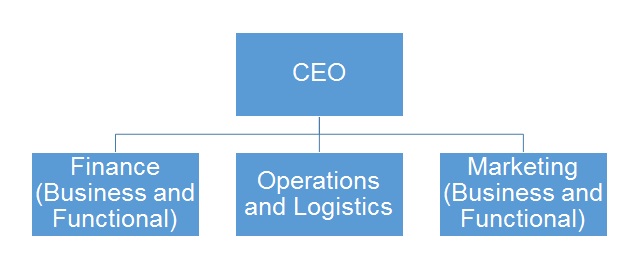Executive Summary
This report aims to discuss, identify, and recognise the internal and external environmental factors that affect MAWAQIF (1). This analysis holds precedence in improving its operational efficiency and profitability. Similarly, this analysis contributes to the improvement of its strategic formulation process. Comprehensively, this report should help managers of MAWAQIF (1) to adapt to the dynamic needs of Abu Dhabi motorists and improve their service delivery. This way, they would cement their position in the market and formulate better strategic decisions to guide the organisation’s growth, in the next few years.
The main issues covered in this report include analyses of the organisation’s external and internal environments. These analyses aim to identify the core competencies and weaknesses of the organisation. Broadly, these analyses provide the justification for the formulation of future strategic recommendations for the company. Detailed aspects of this analysis show how the proposed strategic recommendations would affect different aspects of the organisation’s performance. Particularly, this paper focuses on how the proposed recommendations would affect the organisation’s corporate and business level strategies. Similarly, this report explains how the same recommendations would affect key business divisions of the organisation.
Broadly, this paper shows that political goodwill and exemplary customer services are the company’s main strengths. However, the failure of MAWAQIF (1) to operate optimally (insufficient infrastructure to accommodate the rising demand for parking spaces) and a rigid organisational culture are the greatest weaknesses of the organisation. Therefore, expanding the organisation’s parking infrastructure and introducing more flexibility in the company’s parking management services should mitigate some of these concerns.
Based on an evaluation of the organisation’s internal and external environmental factors, this report outlines the following recommends for MAWAQIF (1)
- Redesign the value chain process to increase operational efficiency and profitability
- Improve the organisation’s user information and pricing strategies to increase operational performance.
Introduction
Background
This report is a strategic analysis of the parking management services of MAWAQIF (1). MAWAQIF (1) is a division of the UAE’s Department of Transport (DoT), which solely manages all public parking in Abu Dhabi. The organisation has two main departments as outlined below
Table 1: Organisation Structure of MAWAQIF (1).
As a case study, this report analyses the internal and external environments of the organisation to ascertain its key competencies and weaknesses. To achieve the same goal, this report also evaluates the value chain processes of the organisation. Comprehensively, the findings of these analyses outline the framework for the formulation of the company’s strategic direction.
Aim
Based on the vision and goals of MAWAQIF (1), it is pertinent to review the organisation’s strategic focus, particularly regarding its ability to overcome its operational challenges and its role in managing the needs of Abu Dhabi’s dynamic growth. From this background, this paper relies on core strategic management concepts to review the organisation’s performance and outline its future strategic direction. To have a more comprehensive understanding of the challenges and opportunities of MAWAQIF (1), this paper explores its core competencies and weaknesses that affect the process of meeting its organisational goals.
Scope
The scope of this paper covers the internal and external environments of MAWAQIF (1), its cost and differentiation strategies, and its value chain processes. These analyses provide the basis for the formulation of a new strategic framework to propel the organisation’s success.
Strategic Overview
Company Vision
According to the company website of MAWAQIF (1), the organisation’s parking management program seeks to promote the vision of creating a greener, more accessible, and less congested city (Abu Dhabi). This vision aligns with the vision 2030 plan of Abu Dhabi, which seeks to elevate the city’s profile as a leading global capital (with seamless connectivity and mobility) (MAWAQIF, 1). However, the practicality of achieving this vision depends on its external and internal environments
External Environment Analysis
PESTEL Analysis
A PESTEL analysis explores the external environment of a business by focusing on its political, economic, social, technological, environmental, and legal environments, as shown below.

This paper uses this strategic framework to analyse the external environment of MAWAQIF (1).
Political
MAWAQIF (1) is a political entity. Since it is part of the DoT, the organisation wields a lot of political power, which allows it to operate with little (or no) interference from other agencies. This political power also enables the organisation to formulate and implement its policies efficiently. For example, the organisation easily formulates new parking rates and fines easily (MAWAQIF, 4). Moreover, through its political connection, the organisation easily coordinates its activities with other government entities, thereby providing a seamless integration of its activities with other government departments.
Economic
Since MAWAQIF (1) relies on public funds to manage its operations, its success depends on the Emirate’s economic conditions. Indisputably, a stable economic growth is important to the company’s success because it eases the clients’ ability to pay for parking services, thereby providing revenue for the organisation to fund its projects. The current economic growth in Abu Dhabi has recently helped to create a favourable economic environment for the organisation to thrive.
Environmental
Increased concerns for environmental pollution (caused by increased car numbers) pose a serious challenge to the activities of MAWAQIF (1). Similarly, since the organisation’s mandate involves constructing new parking facilities (to increase the supply of parking spaces) for motorists, concerns regarding the impact of the construction industry on the environment also affect the organisation. Based on these concerns, MAWAQIF (1) has to formulate environmentally sustainable strategies to guide future growth.
Technological
Technological developments have helped MAWAQIF (1) to improve its service delivery processes. For example, the company has used technology to upgrade its parking meters (Abu Dhabi Government, 1). This development has helped the organisation to upgrade Abu Dhabi’s transport infrastructure and improve the efficiency of the city’s parking management services. Comprehensively, the technological environment has helped MAWAQIF (1) to improve the efficiency of its operations.
Social
Social influences often have a significant impact on the formulation of strategic choices for different companies. MAWAQIF (1) has always experienced the effects of cultural diversity because Abu Dhabi is a multicultural society. The implications of these cultural diversities come from the differences in attitudes, values, religion, lifestyles, and beliefs of the thousands of people who rely on the services of MAWAQIF (1), daily.
Social diversity has a significant impact on the customer services provided by MAWAQIF (2). The organisation has to be culturally sensitive to the needs of every demographic, as it offers its services. This reason informs why the organisation offers a dual-language service (Arabic-English) to its clients (Oman and Middle East Business News, 3).
Legal
Changes in laws often affect organisational activities in different ways. Some legal changes may cause a company to wind up, while others may increase a company’s market. Since MAWAQIF (1) is a government entity, few legal issues affect its operations. In fact, the organisation makes laws (concerning parking fees and fines) that affect Abu Dhabi motorists. The compliance with these laws outlines the company’s main operations. Unless the government transfers its roles and duties to another government agency, MAWAQIF (1) remains a vibrant government entity that thrives on the compliance with government laws to manage parking services in Abu Dhabi.
Internal Environmental Analysis
SWOT Analysis
A SWOT analysis refers to the analysis of strengths, weaknesses, opportunities, and threats of an organisation.
Strengths
The greatest strength of MAWAQIF (1) is its exceptional customer service. Part of the organisation’s success (in this regard) hinges on associating exemplary customer services to key performance indicators affecting service delivery. Since the DoT has assigned MAWAQIF (1) as the sole parking management organisation, the company also enjoys the monopoly of having the best parking inspectors in the city. Lastly, its affiliation to the UAE government gives it immense authority to implement its business goals, with little interference.
Value Chain
The above company strengths stem from the organisation’s four-stage value chain process as shown below.

Based on the above value chain process, the main areas of competitive advantage for MAWAQIF (1) are design, installation, and maintenance stages. These stages explain why MAWAQIF (1) is a leader in parking services. For example, the design processes adopted by MAWAQIF (1) appeal to a mass market (public parking management). Therefore, MAWAQIF (1) provides a practical public parking management service for meeting the parking needs of Abu Dhabi motorists. The company’s meticulous installation process also appeals to the same need because MAWAQIF (2) installs mass parking facilities (such as multiple parking payment alternatives) that appeal to a mass market. These value chain stages outline the organisation’s competitive advantages.
Weaknesses
The lack of sufficient infrastructure to accommodate the rising demand for parking spaces is a huge challenge facing MAWAQIF (1). Unfortunately, this is a challenge that MAWAQIF (1) has not adequately addressed because its construction of new parking spaces has failed to meet the demand for the same. Lastly, since MAWAQIF (1) is a government organisation, the top-down leadership structure that characterises such organisations limits its strategic flexibility.
Opportunities
The expansion of parking spaces in Abu Dhabi provides immense opportunities for MAWAQIF (1) to improve the quality of its services. For example, many Abu Dhabi motorists complain about the lack of adequate parking spaces in the city (Ismail, 2). This problem is a perennial issue that characterises many growing cities around the world. However, since MAWAQIF (1) has realised the need to increase the supply of parking spaces, the construction of multi-storey car parks provide numerous opportunities for the company to expand its revenue base and address a key management concern – congestion.
Threats
The high cost of managing the parking services in Abu Dhabi is a significant threat to the operations of MAWAQIF (1). The organisation incurs several expenditures for managing its park services. For example, the organisation incurs huge expenditures attributed to salaries, wages, construction, and maintenance of parking signs (among other costs).
The costs of these services have always increased, thereby requiring the organisation to look for alternative sources of funding, or increase the rates, penalties, and fines imposed on its customers to increase its cash reserves. Inadequate funding from the DoT could also complicate this problem, thereby affecting the sustainability of the organisation’s operations.
The diagram below summarises the SWOT analysis described above
Table 2: SWOT Analysis for MAWAQIF (1)
Strategic Analysis
Corporate Level Strategy
Different companies use different organisational strategies to achieve their competitive advantages. Michael Porter (cited in Mind Tools, 6), a researcher, summarised these competitive strategies in his generic theory shown below.

The corporate level strategy for MAWAQIF (1) follows the above strategic framework.
Differentiation Strategy
MAWAQIF (1) differentiates itself by offering public parking services in Abu Dhabi
Cost Strategy
MAWAQIF (4) enjoys the monopoly of setting the parking fees for Abu Dhabi.
The diagram below shows how MAWAQIF (1) enjoys a greater market share because of its cost and differentiation strategies.

Porter’s generic theory explains the possibility of a trade-off between cost and differentiation strategies. MAWAQIF (4) should adopt this dual competitive advantage by adopting both strategies simultaneously. Key functional areas that this corporate level strategy would affect are
- Marketing.
- Operations and Logistics.
- Finance.
The recommendations section of this report explains the role of these functional areas, in detail
Business Level Strategy
The implementation process of the corporate level strategy manifests through a redesign of the business level strategy. This paper has identified three departments that are vital to the overall success of the organisation – marketing, operations and logistics, and finance. The diagram below explains the predicted implementation process of the corporate level strategy

Recommendations
The value chain analysis of MAWAQIF (1) showed that the design, installation, and repair stages are the main sources of competitive advantage for the company. This section of the report focuses on how MAWAQIF (1) could improve its design stage by modifying its pricing strategy and improving its user information and marketing systems.
Change Pricing Strategy
The current pricing strategy of MAWAQIF (1) offers little flexibility to customers because it uses a “flat” pricing formula. The organisation should change this pricing strategy to optimise the use of its parking facilities. Litman (19) says this (proposed) parking strategy would be performance-based. For example, instead of charging a fixed hourly parking rate, MAWAQIF (1) needs to charge its clients for the time parked (only). This strategy would increase the efficiency of the parking facilities by eliminating the need for customers to overstay their parking time. As stated in the business level strategic analysis (above), the implementation process would affect different functional areas as outlined below
Operations and Logistics
The design stage offers many opportunities for improving the value chain process of MAWAQIF (1). Currently, the organisation’s parking design assigns one parking spot for one client, at a specific time. However, considering the increased demand for parking spaces, and the limited supply of the same, the organisation could design its parking payment systems to allow for shared parking. This recommendation should eliminate the infrastructure weaknesses (outlined in the SWOT analysis)
Finance
The introduction of the shared parking system would affect the financial operations of the organisation because it requires a re-design of the company’s payment system. For example, 100 employees could share about 70 parking spaces, instead of 100 parking spaces. This system is an inexpensive strategy of solving Abu Dhabi’s parking problems. Say, if an employee went on leave, he could leave his parking spot for another employee. This system would also introduce a new framework for billing customers because it will mark the departure from a reserved parking system to a shared parking system. Besides the finance and operations departments, the marketing department would accommodate similar changes according to the second recommendation outlined below
Improve User Information and Marketing
Motorists in Abu Dhabi always complain of inadequate parking (Ismail, 2). Improving user information regarding the available parking spaces would improve the efficiency of the parking management system because it would inform customers about the available parking spaces (that they do not see). The diagram below explains how this recommendation would suffice

The proposed methodology (above) reflects the views of Litman (21), which affirm that many parking problems often arise from inadequate user information. MAWAQIF (1) could avail this information by developing electronic guidance systems for updating customers about the available parking spots.
Conclusion
This paper sought to review the progress of MAWAQIF (1) (regarding its ability to address Abu Dhabi’s parking challenges). From this background, this paper relied on core strategic management concepts to review the organisation’s internal and external environments.
The PESTEL analysis explored the organisation’s external environment, while the SWOT analysis explored the organisation’s internal environment. Political goodwill emerged as the main external strength of the company, while exemplary customer service emerged as the company’s main internal strength. However, the failure of MAWAQIF (1) to operate optimally (lack of sufficient infrastructure to accommodate the rising demand for parking spaces) is the greatest weakness of the organisation.
This paper proposes the improvement of the company’s key competencies by redesigning its value chain process to overcome some of its organisational challenges. Improving user information and changing the organisation’s pricing strategies outline effective strategies that the organisation could use to achieve this objective. The position of MAWAQIF (1) as a government agency should help it to accommodate these changes, easily, because it does not experience significant competitive pressures that would result in a loss of market share if it fails to do so.
Comprehensively, MAWAQIF (1) should maintain its position, as the only government agency that manages public parking services in Abu Dhabi. Although the organisation enjoys the monopoly of managing public parking in Abu Dhabi, it should improve its services and resist dormancy. Indeed, the organisation needs to address Abu Dhabi’s parking challenges by being more innovative and proactive. Nonetheless, the company’s progress in this regard has been commendable.
Works Cited
Abu Dhabi Government. “Press Releases.” DoT. Abu Dhabi Government. 2014. Web.
DineshBakshi. “External environment factors.” DineshBakshi. DineshBakshi, 2014. Web.
Ismail, Manal. “Drivers Have Permits but Nowhere To Park.” The National. The National, 2011. Web.
Litman, Alexander. “Parking Management: Strategies, Evaluation and Planning.”
Victoria Transport Policy Institute. Victoria Transport Policy Institute, 2012. Web.
MAWAQIF. “Public Parking Control.” MAWAQIF. Department of Transport, 2014. Web.
Minarik, Martina. “Cost Leadership & Differentiation – An investigation of the fundamental trade-off between Porter’s cost leadership and differentiation strategies.” HHS. Stockholm School of Economics, 2007. Web.
Mind Tools. “Porter’s Generic Strategies.” Mind Tools. Mind Tools, 2014. Web.
Oman and Middle East Business News. “Abu Dhabi Parking System: MAWAQiF Delivers Exceptional Customer Service by Standardizing on Interactive Intelligence CIC Contact Center Solution.” Smart Oman. Oman and Middle East Business News, 2014. Web.